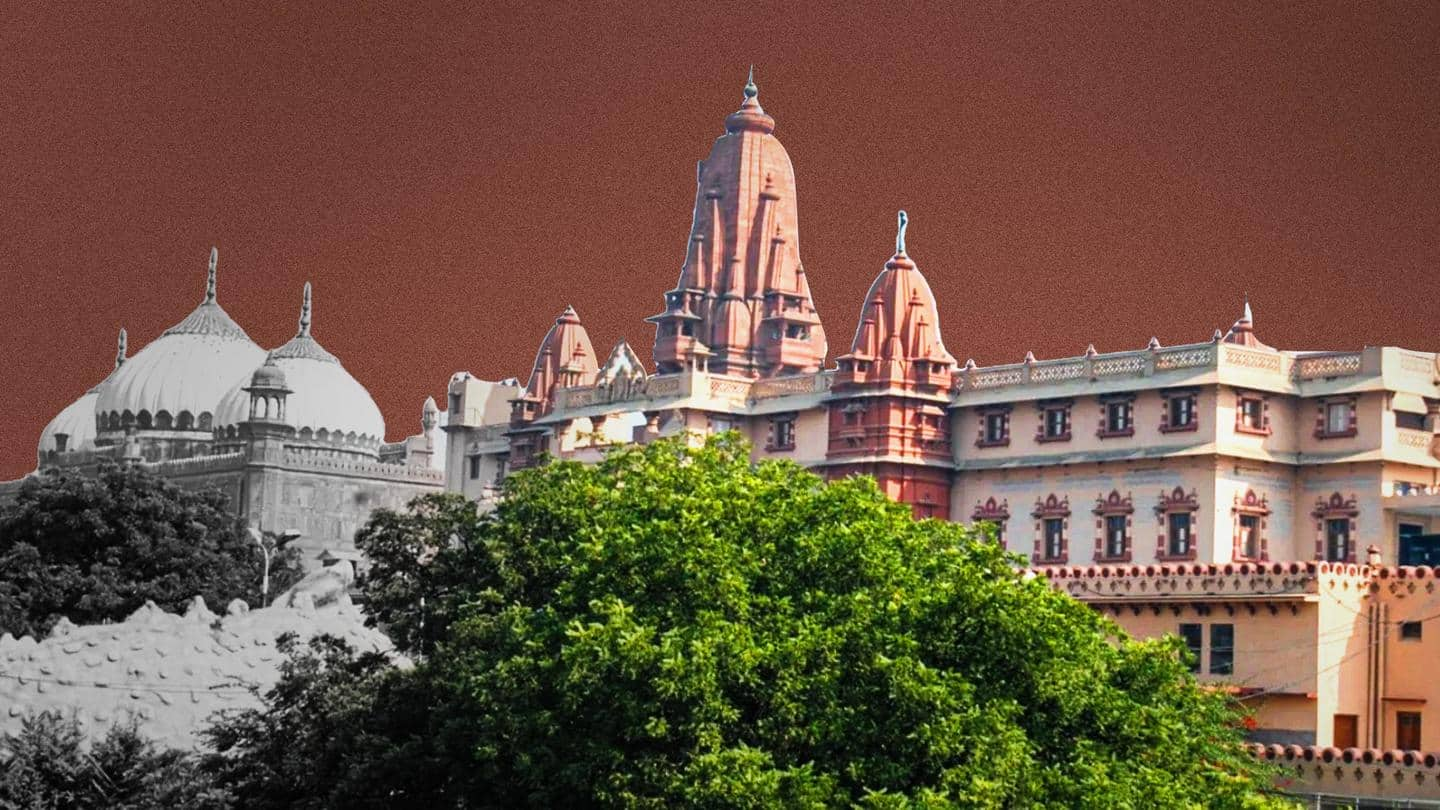
Krishna Janmabhoomi case: Mathura court defers hearing till May 31
What's the story
Mathura's district court on Wednesday deferred hearing on petitions filed in connection with the Shri Krishna Janmabhoomi issue.
The matter will now be heard next week on Tuesday.
The latest petition, filed by a lawyer, asked for authorization to bring a suit as a representative and to prohibit Muslim pilgrims from worshiping at the Idgah near Shri Krishna Janmabhoomi.
Context
Why does this story matter?
This matter gained significance because the Supreme Court and a Varanasi court are already hearing the Varanasi Gyanvapi Mosque-Shringar Gauri case.
Both the cases are similar in nature where the Hindu petitioners claim that mosques were built on temple lands.
Notably, such cases have assumed significance following the Supreme Court's decision in the Babri Masjid-Ram Janmabhoomi case in 2019.
Details
Petitioners invoke Section 92 of Civil Procedure Code
Singh stated that the petition was submitted along with an application under Section 92 of the Civil Procedure Code, read with Sections 91 and 151.
The law includes a provision that permits the state's advocate general or two or more individuals with a shared aim to seek authority from a district court to pursue suit in a representative capacity, he added.
Petitioners
What did the petitioners demand earlier?
Earlier, petitioners in separate pleas sought the ownership of 13.37 acres of land of the disputed site and the removal of the Shahi Idgah Mosque built there.
One of the petitioners also requested the court to demolish the Idgah declaring it illegal and hand over the entire land to the de-facto owner—Lord Shri Krishna Virajman of the Katra Keshav Dev Temple.
Information
Allahabad HC's four-month deadline to the district court
On May 12, the Allahabad High Court asked the lower court involved to deliberate on a temporary injunction motion as well as a request for grouping the trial in all ongoing matters pertaining to the Shri Krishna Janmabhoomi-Shahi Idgah Mosque controversy within four months.
Dispute
What puts spotlight on the issue?
Amid the ongoing Kashi Vishwanath-Gyanvapi Mosque row, the court on May 19 allowed a petition seeking the removal of the Shahi Idgah Mosque near the Krishna Janmabhoomi.
The petitioner had claimed that the mosque was built by Mughal emperor Aurangzeb in 1669-70 on the land belonging to the Keshav Dev Temple, the birthplace of Lord Krishna.
'Next friend'
Mosque wrongly built: Petitioner
The petition was filed by Lucknow-based Ranjana Agnihotri as "next friend of the infant Lord Krishna."
"As worshippers of Lord Krishna, we have the right to file a suit demanding restoration of his property," said the petitioner's lawyer.
In legal parlance, a "next friend" is a person who represents another person as the latter is unable to represent themselves in court.
Challenged
Lawsuit earlier dismissed citing Places of Worship Act
The Mathura civil court had earlier dismissed the lawsuit citing the Places of Worship Act of 1991.
It had also said that if the lawsuit was registered then worshippers would approach the court with various cases.
The order was, however, challenged by the petitioners, who argued that as Lord Krishna devotees, they had a right to approach the court.
Do you know?
The Places of Worship Act, 1991
The Places of Worship Act, 1991, lays down that the character of a religious place cannot be altered from what it was on August 15, 1947. The SC has consistently upheld the Act while granting an exception only in the Babri Masjid-Ram Janmabhoomi case.